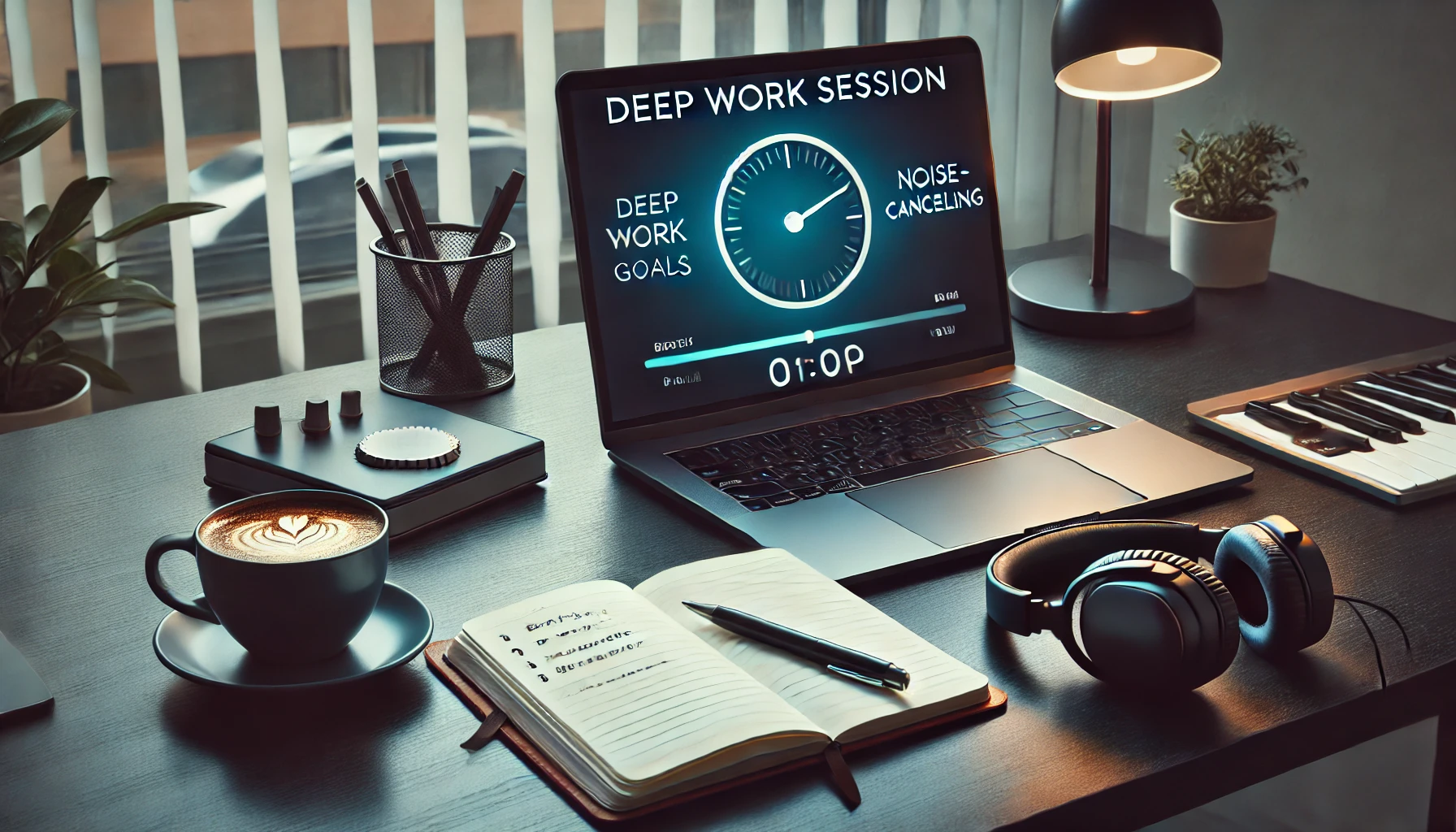What Is Deep Work?
Deep work is the ability to focus intensely on a cognitively demanding task without distractions. Coined by Cal Newport, this concept emphasizes the importance of uninterrupted concentration to produce high-quality work in less time.
Shallow work, on the other hand, includes tasks like checking emails, attending unnecessary meetings, and scrolling social media—activities that don’t require deep thinking.
Why Deep Work Matters
- Increases productivity – You get more done in less time.
- Enhances skill development – Focused work improves learning and mastery.
- Boosts creativity – Deep concentration leads to innovative thinking.
- Reduces stress – Completing important tasks efficiently lowers anxiety.
How to Train Your Brain for Deep Work
1. Eliminate Distractions
✔ Turn off notifications on your phone and computer.
✔ Use website blockers like Freedom or Cold Turkey.
✔ Create a dedicated workspace free from interruptions.
✔ Inform others of your focus time to avoid disruptions.
2. Use Time Blocking
Schedule deep work sessions in 90-minute blocks. Studies show that the brain can sustain high focus for about 90 minutes before needing a break.
Example deep work schedule:
- 8:00 AM – 9:30 AM: Focused work session
- 9:30 AM – 9:45 AM: Short break
- 9:45 AM – 11:15 AM: Second deep work session
3. Try the Pomodoro Technique
If 90 minutes feels too long, use the Pomodoro Technique—work for 25–50 minutes, take a 5–10 minute break, and repeat.
4. Set Clear Goals Before You Start
Before each deep work session, define what you want to accomplish. Use the SMART method (Specific, Measurable, Achievable, Relevant, Time-bound) to set clear objectives.
Example: Instead of “Work on my project,” say “Write 500 words of my article”.
5. Train Your Brain to Focus Longer
Your ability to concentrate is like a muscle—it gets stronger with practice. Start with short deep work sessions (e.g., 30 minutes) and gradually increase the duration.
6. Take Breaks to Recharge
After intense focus, give your brain time to recover. Walk, stretch, or meditate during breaks to refresh your mind for the next session.
Final Thoughts
Deep work is a skill that requires practice, but once mastered, it significantly boosts productivity and creativity. By eliminating distractions, scheduling focused sessions, and training your brain, you can maximize your concentration and accomplish more in less time.


